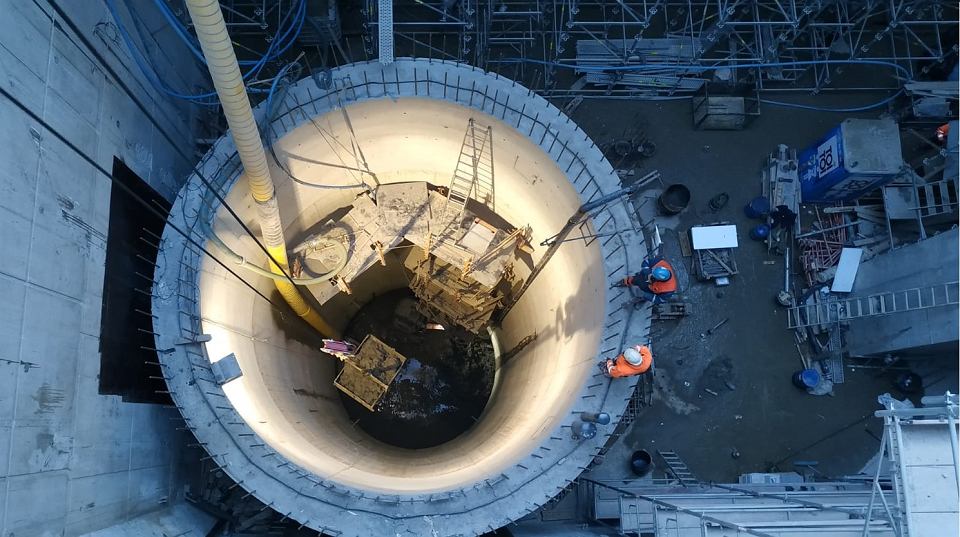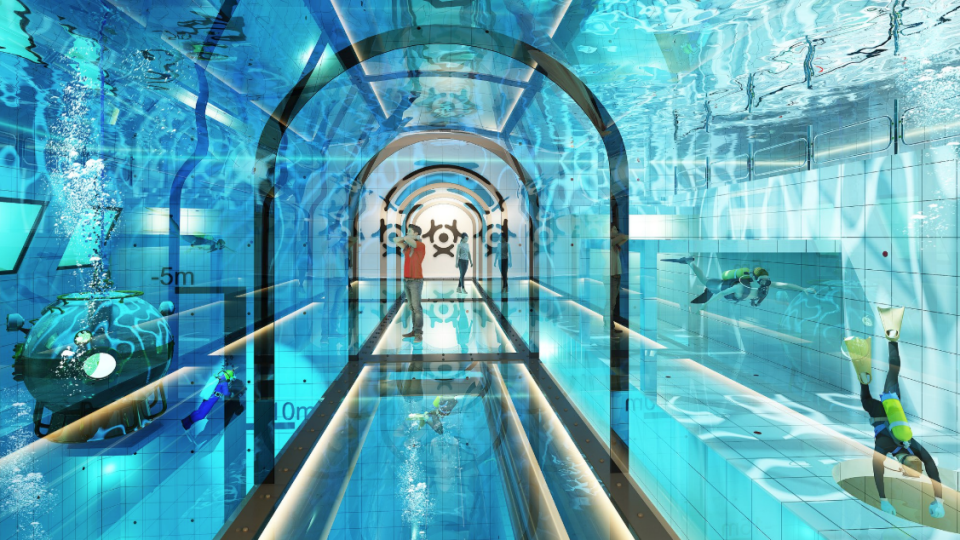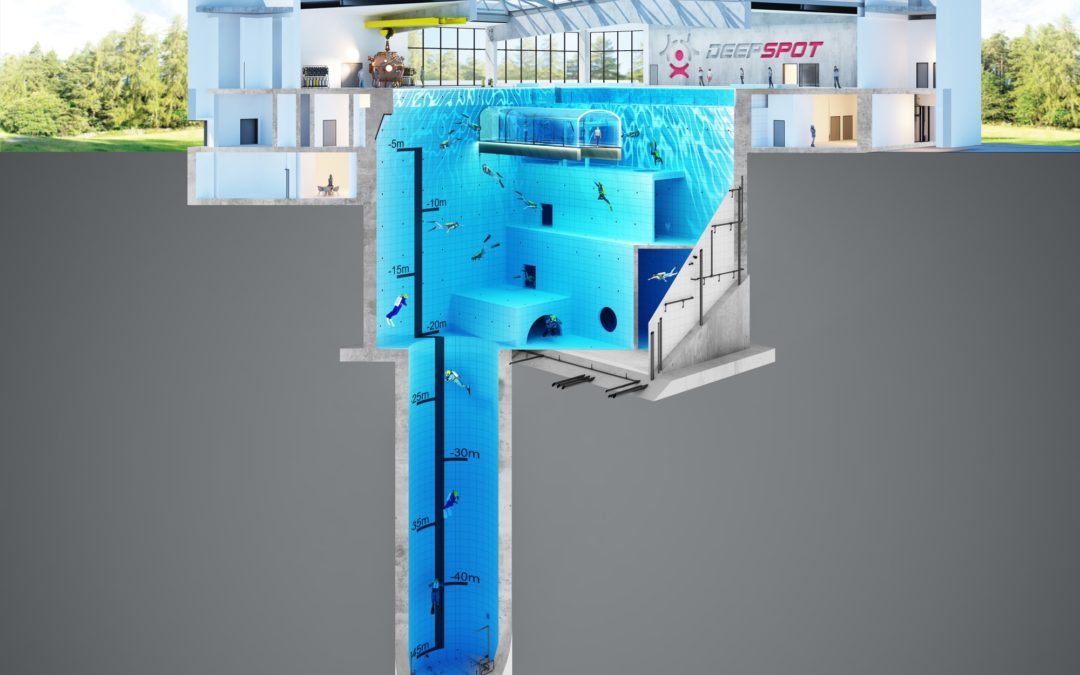Work to construct what will be the world’s deepest swimming pool, Deepspot in Mszczonów near Warsaw, is still on course to be finished by this summer, despite the coronavirus epidemic.
When finished, the pool will have a depth of 45 metres – almost three metres deeper than the current record-holder, the Y-40 pool in the Italian town of Montegrotto Terme. The site will also feature a viewing tunnel inside the pool itself, as well as hotel rooms and a conference centre with underwater views.

The pool has been under construction since last year, with an original opening date of autumn 2019 delayed to mid-2020. A “technical launch” is planed for July or August, with a “ceremonial” one in October, reports Gazeta Wyborcza.
“The level of difficulty of construction is similar to building a metro,” Bożena Parsons, a representative of Flyspot, the company behind Deepspot, told the newspaper. “The depth of the pool raises the greatest challenges.”
“Over the past months, we’ve been fighting the groundwater we’ve come across. We had to pump out the water and mud that flooded us,” she added. “When we breathed a sigh of relief that the worst was probably behind us, an epidemic began!”
The epidemic has not only had an impact on the construction process, but also on the financial situation of the company, reports Gazeta Wyborcza. As a result of the lockdown, Flyspot’s main source of income, their wind tunnel flying simulators, have had to be closed. However, they have said that the bank which was providing financing for the Deepspot pool has responded sympathetically.

Despite the hurdles, the project is in its final stages, with the walls already built with insulating layers and tiles and the underwater footbridge viewing structure – which will eventually be covered with a glass tunnel – partially assembled. The five double guest rooms, which are below the water level with a view of the pool, are also complete.
Currently, work is underway on the deepest part of the pool, a tube-like structure with a four-metre diameter, which extends 20 metres into the ground. The tube is constructed from individual segments which are gradually immersed in the ground. FlySpot estimates that this will be completed by the end of April, when they can plug the tube.
On social media, the team behind Deepspot thanked the construction companies who were continuing to work on the project. They particularly acknowledged the work of ZUPH Kołaczkowski, a firm responsible for laying four kilometres of pipes in the pool, as well as organising the pool heating system.
“There are moments when sacrifice and tough decision making are necessary from all of us,” said Paweł Kołaczkowski, the manager of ZUPH Kołaczkowski. “But looking back, all our efforts and hard work were effective and successful as planned.”

The pool, which will be open all year round once finished, is advertised as an ideal training facility for divers, with illuminated and heated water. It will contain 8,000 cubic metres of water, 27 times the volume of an average 25-metre pool.
However, Deepspot is unlikely to hold the title of deepest pool in the world for long. The Blue Abyss in Liverpool, England, will be 5 metres deeper when it reaches completion, which is currently planned for spring 2021. It will be used for deep-sea and space extreme environment research and training.
Earlier this year, Europe’s largest indoor waterpark opened in Poland, just a few kilometres from Deepspot’s location. Suntago Water World, however, had to suspend operation a little more than a month after opening due to the introduction of Poland’s lockdown measures to mitigate the spread of the coronavirus.
All image credits: Deepspot press material

Juliette Bretan is a freelance journalist covering Polish and Eastern European current affairs and culture. Her work has featured on the BBC World Service, and in CityMetric, The Independent, Ozy, New Eastern Europe and Culture.pl.




















